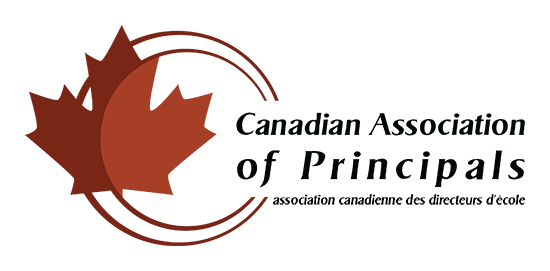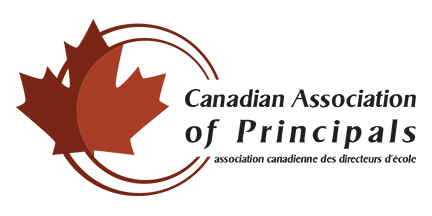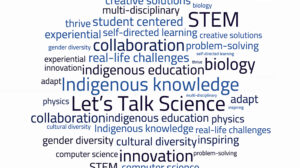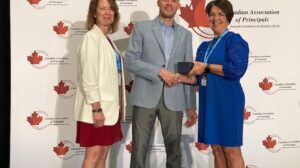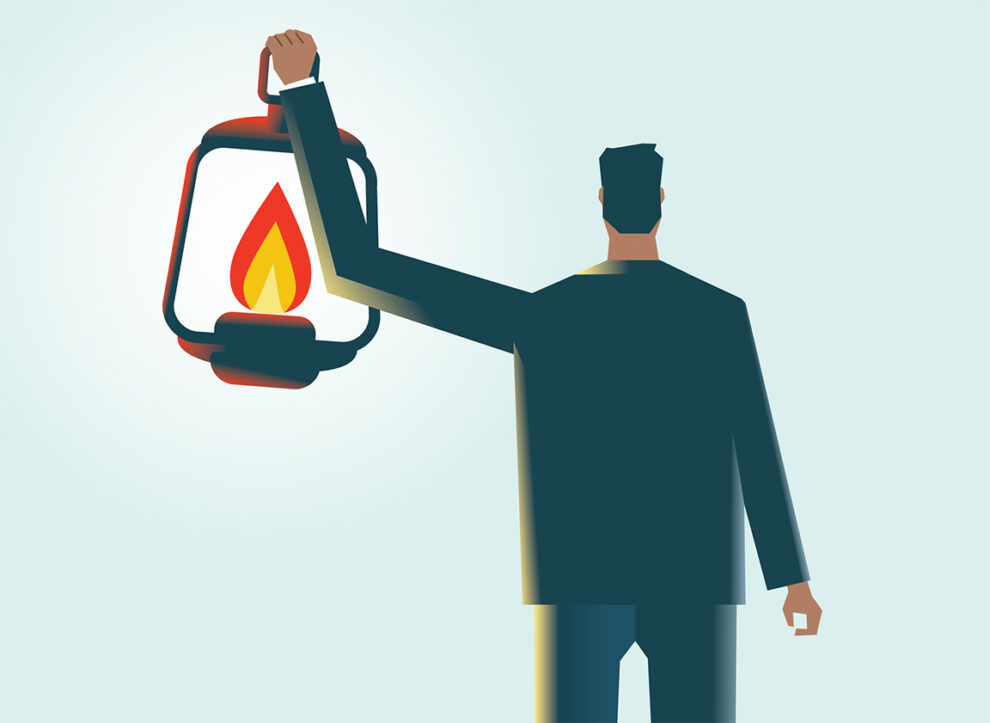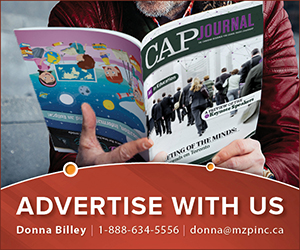With my eyes that are surrounded by crow feet wrinkles, I have witnessed a few decades of education from both my colonial/western perspective and my Algonquin perspective. I have walked the two worlds, albeit at times in my life, in a staggering forward direction. I provide this advice as a more seasoned member of the teaching profession but also a First Nations female who navigates the waters of Western education.
Growing up, I had few role models or mentors. This is attributed to the decades of my youth (70’s and 80’s), the remoteness of my upbringing (small towns) and recognizing that I had no idea what life could look like. Those youthful junctions were not profound or impactful during the moment, and only later in life when I reflect, do I see moments of inspiration/role models and a deeper understanding of the impact of education.
I have always enjoyed learning. As a kid, when I was asked what my favourite subjects were, it was always reading/spelling, science and phys. ed. I loved the challenge of learning within the subject and the ease with which I could comprehend each of them. My jobs, hobbies and passions have always included elements of these three school subjects and my post-secondary degrees also align and echo my favourites – science, recreation/business and education. Even my current role as Director, Equity at Let’s Talk Science embodies all my favourite subjects.
Along the youthful way, there were people who would provide opportunities for me to explore or expand in these ‘favourite’ subjects of mine – whether it was spelling competitions, public speaking events, science fairs/projects or joining all the sports teams that I could cram in. In retrospect, all those people who invited me, made space to include me or teach me are people I now consider a role model or guide. This circle of influencers were also family members: a mother who valued education but worked three jobs and still managed to make sure that all permission forms were signed or knew where I was to be and at what time; two brothers who were into sports themselves and made time/space for a younger sister to join and improve my skills (at a time when female sports were not common). As a child or youth, I did not see anyone that reflected TV in my time was limited to a handful of channels provided by antenna/cable, western school systems were not accepting of First Nations kids (I witnessed a teacher violently grab a student who was First Nations and yet the teacher never touched anyone else – which reinforced my behaviour of staying quiet) and I was sheltered from many societal influences. I relied on guidance, direction and trust of those who were influencers, all without the presence of a public or well-known First Nations role model. Advice for those who just finished reading the paragraph – you can add to any youth’s self-worth with a word, an affirmation, an opportunity.
Adding in the element of First Nations, I had to figure out for myself how I fit and how I connected to those around me. For me, role models were not necessarily those who looked like me but rather people who guided, taught, and connected with me – those who amplified my self-worth and saw opportunities beyond the accepted and expected. From the Let’s Talk Science, Spotlight on Science Report (2022), “There’s always more than one way to get to a destination, and sometimes the destination itself isn’t completely clear. That’s learning.” and I would also state that is what role models do. Helping point a way.
Through my decades of formal and informal educational opportunities, sports, and various jobs, I built my confidence, competence, understanding and self-esteem. I learned that role models are one piece of the larger picture of my spirit as a First Nations female. My touchstone for many of my life experiences was education. Education in formal, western institutions or informal settings of sports/athletics. Education through stories of friends, families and knowledge keepers. Education from making mistakes or successful moments. Education that surrounds us all.
From this First Nations educator, more advice on empowering Indigenous youth – whether you are a teacher, volunteer, caregiver or what title works, examine your views of education. Recognize all privileges and build on those. Respect how others may view learning and know that there is inherent richness and value to those worldviews. Redefine or omit the concept of failure for our students since no one likes to fail and one generation’s definition of failure may not be another generation’s definition. Protect, build and nourish a person’s sense of spirit/self. You are a beacon for a person’s lifelong journey and their destination.
Students come and go. All ages and all experiences. You don’t need a formal education to be a beacon. But rather use the warmth, comfort and guidance of the light to illuminate the way of our future generations.
THE AUTHOR:
Tammy Webster, Director, Equity at Let’s Talk Science
